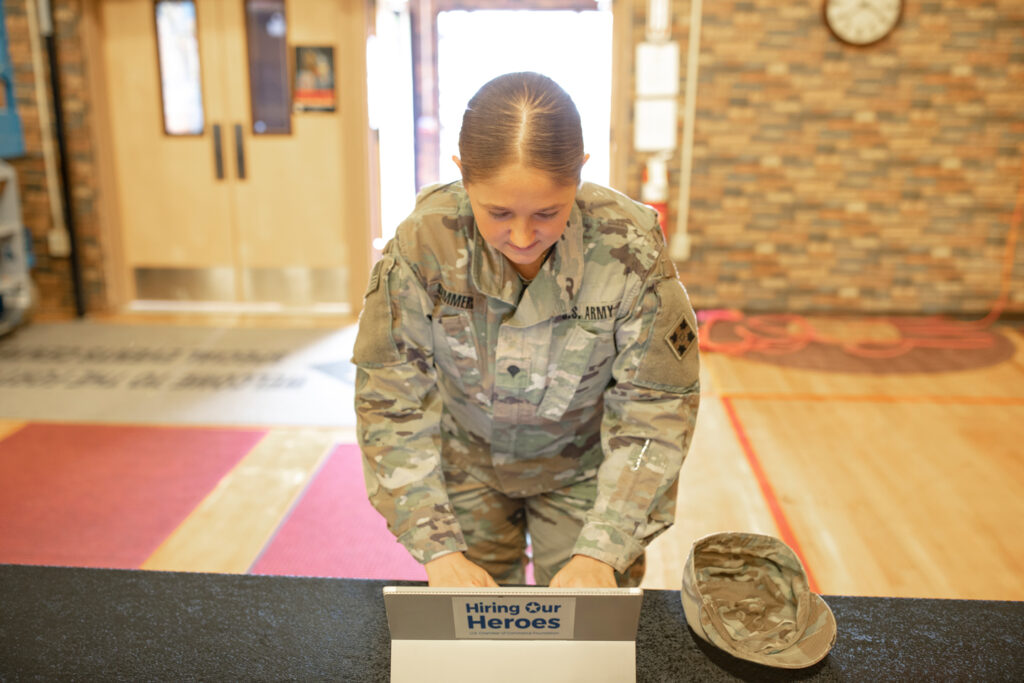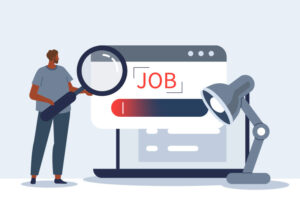Expert Tips &Resources
Empower yourself with the knowledge and confidence to succeed in every step of your career journey. Dive into our resources and get the edge you need to stand out to employers.


Get Noticed
This is your moment to shine, so prepare for the spotlight. What to wear? What to bring? What to say? These specific tips for transitioning service members will arm you with information and confidence–and help you make the personal connection employers look for.
-
When it comes to networking, fortune favors the bold. As a member of the military community, you’re already way ahead of the game.
-
A recruiter is someone who will connect the dots for you. They will help you get your foot in the door for that first job interview.
-
Your mission at job fairs: Stand out from the other attendees. When a fair is over, recruiters will take home a towering stack of resumes.
-
Your resume should clearly tell potential employers what you can do for them. Thanks to Resume Engine, accomplishing this has never been easier.
-
Making your resume searchable on Resume Engine will get you noticed by thousands of employers, but it is important to be proactive too.
-
Of course you want a job, but it’s also important to work for a company that understands where you come from. A few signs of a military-friendly company are…
-
Even after you’ve created a draft of your resume, you’ll want to give it a final polish. Here are some tips on highlighting your skills and qualities.
-
Your cover letter is a preview to the main attraction: your resume. It carries the same weight of importance, except with this twist…
Nail the Interview
This is your moment to shine, so prepare for the spotlight. What to wear? What to bring? What to say? These specific tips for service members will arm you with information and confidence – and help you make the personal connection employers look for.
-
The saying in the field is also true for the interview: Failing to plan is planning to fail. To succeed at this stage, you must arm yourself with information.
-
Most employers have no idea how your work in the military translates to the civilian workforce. Connect the dots so they know your service make you an asset.
-
Job interviewers may be confused about the requirements of your service. Prove that your service is a benefit to them.
-
Part of the reason job interviews are stressful is that they’re so unusual. But if you’ve ever prepared for a military board, you’re ahead of the game.
-
The military gave you habits that will be great in an interview, but there are some traits you’ve acquired in your service that will work against you.
-
The one-size-fits-all military image isn’t always right for the civilian job market. Here are a few things to think about.
-
Interviews are hard enough as it is—adding the kind of impossible questions that people ask veterans every day can make them even worse.
-
There’s a reason service members refer to nonmilitary life as “the civilian world.” It’s a whole new way of life—complete with its own rules and expectations.
Take the Next Steps
No matter how the interview goes, it isn’t the end of the process. Just as with any operation, you need to follow up and assess. These articles will keep you on the right track–and get you ready for when a company says “yes”.
-
No matter how well you think the interview went, your last impression is crucial. Even after you leave, you still have the chance to set yourself apart from the herd.
-
So, you have been offered a job. Congratulations! Before you say yes, consider whether this position and company will be a good fit.
-
A job interview is just like any mission—no matter how well you did, there are always some areas you can improve.
-
For veterans, especially those coming off of active duty, starting a new job means learning a whole new way of doing business.




















